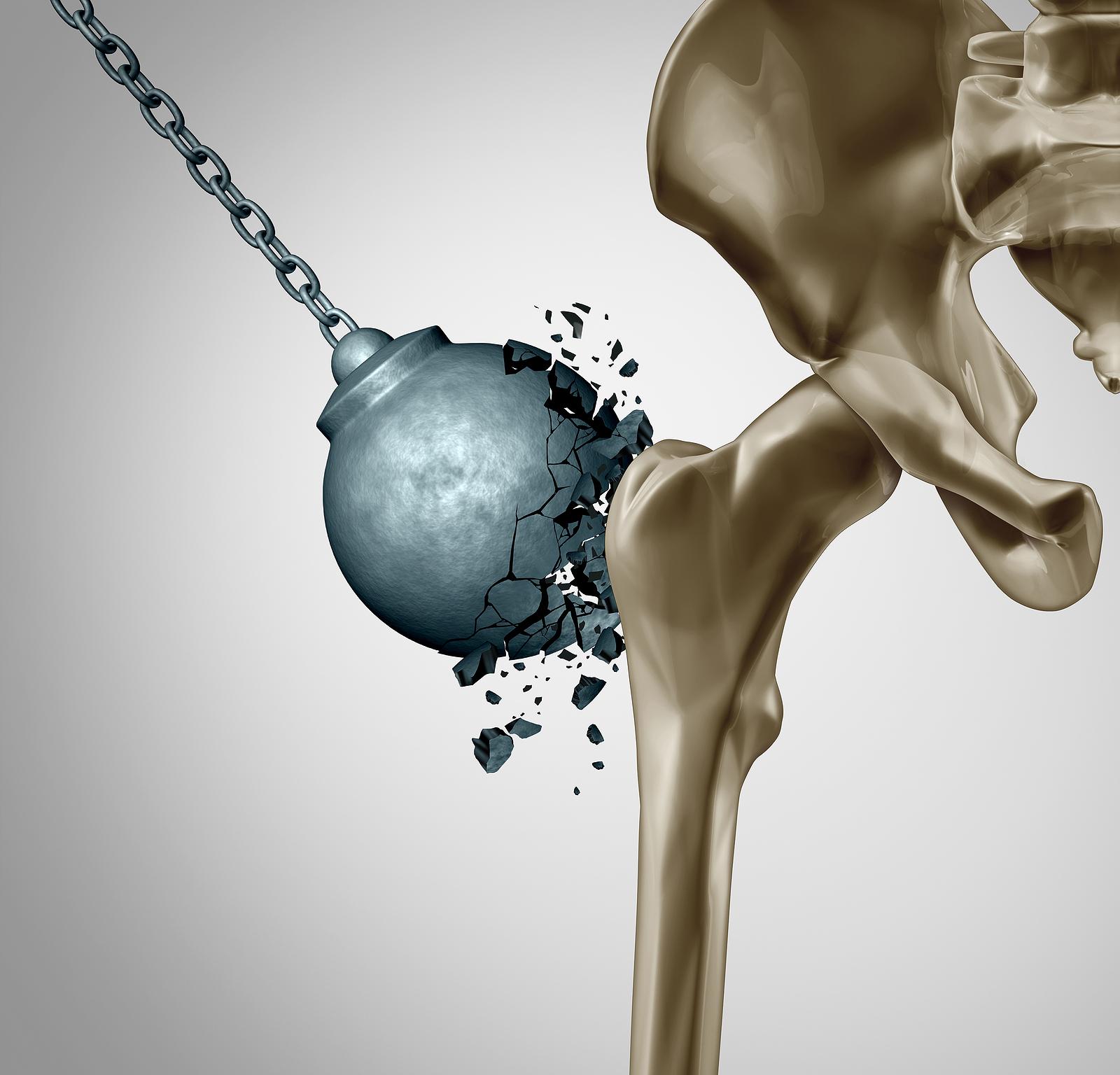When it comes to maintaining overall health, the importance of strong and healthy bones is often overlooked. Our bones serve as the foundational framework of our bodies, supporting our movements and protecting our vital organs. Yet, many people take their skeletal health for granted until they face challenges that can arise from weak or deteriorating bones, such as fractures, osteoporosis, and chronic pain. In this article, we delve into essential tips for nurturing your bone health throughout all stages of life. From dietary choices to lifestyle habits, we’ll explore practical strategies that can help keep your bones strong and resilient, empowering you to live an active and fulfilling life. Whether you’re a fitness enthusiast seeking to optimize your physical performance or simply want to ensure your bones remain durable as you age, this guide will provide valuable insights to help you prioritize your skeletal well-being. Join us as we uncover the keys to maintaining robust bones and safeguarding your health for years to come.
Table of Contents
- Understanding the Importance of Bone Health
- Nutritional Foundations for Strong Bones
- Effective Exercise Routines to Enhance Bone Density
- Preventive Measures for Long-Term Bone Wellness
- The Conclusion
Understanding the Importance of Bone Health
Maintaining robust bone health is crucial as it directly influences overall well-being and quality of life. Bones serve not only as the framework for our bodies but also play a vital role in several physiological processes, including the production of blood cells and the storage of minerals such as calcium. As we age, bone density tends to decrease, which can predispose individuals to fractures, osteoporosis, and other complications. Recognizing the importance of bone health early on is essential for implementing preventive measures to ensure a strong skeletal system throughout life.
Several key factors contribute to effective bone maintenance, including nutrition, physical activity, and lifestyle choices. A diet rich in calcium and vitamin D is fundamental for bone strength, and sources such as dairy products, leafy greens, and fatty fish should be incorporated. Engaging in weight-bearing and muscle-strengthening exercises not only helps build bone mass but also enhances balance, further reducing the risk of falls. Additionally, minimizing alcohol consumption and quitting smoking are critical lifestyle adjustments that can significantly improve bone health. To grasp the essentials of bone-supporting nutrients, consider the following table:
| Nutrient | Food Sources | Benefits |
|---|---|---|
| Calcium | Dairy, leafy greens, almonds | Strengthens bone and teeth structure |
| Vitamin D | Fatty fish, fortified milk, sunlight | Enhances calcium absorption |
| Magnesium | Nuts, seeds, whole grains | Supports bone mineralization |
Nutritional Foundations for Strong Bones

Maintaining strong and healthy bones requires a dedicated approach to nutrition. Incorporating key nutrients into your daily diet is essential for bone density and overall strength. Focus on a variety of foods that are rich in calcium, vitamin D, magnesium, and phosphorus. These nutrients work synergistically to build and maintain bone mass, helping to prevent fractures and osteoporosis. Consider including the following in your meals:
- Leafy Greens: Spinach, kale, and collard greens
- Dairy Products: Milk, yogurt, and cheese
- Fish: Salmon and sardines with bones
- Fortified Foods: Certain cereals and plant-based milks
In addition to focusing on these vital nutrients, it’s important to engage in a balanced intake of protein, as it supports the body’s absorption of calcium and fosters bone repair and growth. Stay mindful of maintaining a healthy lifestyle to further enhance bone health:
- Physical Activity: Incorporate weight-bearing exercises like walking, dancing, or resistance training.
- Avoiding Excessive Alcohol: Limit alcohol consumption to reduce bone density loss.
- Smoking Cessation: Quit smoking to improve bone health and overall wellness.
Here’s a quick table to illustrate some foods high in bone-strengthening nutrients:
| Food Source | Calcium (mg) | Vitamin D (IU) |
|---|---|---|
| 1 cup of cooked kale | 177 | 43 |
| 1 cup of yogurt (low-fat) | 415 | 80 |
| 3 ounces of canned salmon | 181 | 570 |
| Fortified orange juice (1 cup) | 350 | 137 |
Effective Exercise Routines to Enhance Bone Density
To effectively enhance bone density, it’s essential to engage in weight-bearing and resistance exercises regularly. These activities stimulate bone growth and help maintain strength. Consider incorporating the following types of exercises into your routine:
- Walking or Hiking: A simple and accessible way to get moving while bearing weight.
- Strength Training: Utilizing free weights or resistance bands to support muscular strength and bone health.
- Yoga: Promotes flexibility and balance while helping to fortify bones through various poses.
- Dancing: A fun, engaging way to enhance bone density while also improving coordination.
For optimal results, it is recommended to perform these exercises at least three times a week, ideally mixing different types of workouts to prevent plateauing and injuries. Here’s a simple exercise schedule to guide your weekly routine:
| Day | Activity | Duration |
|---|---|---|
| Monday | Strength Training | 30-45 minutes |
| Wednesday | Yoga | 30-60 minutes |
| Friday | Walking or Hiking | 40+ minutes |
| Saturday | Dancing | 60 minutes |
Preventive Measures for Long-Term Bone Wellness
To ensure long-lasting bone health, adopting a proactive approach is crucial. Regular weight-bearing exercises should be a cornerstone of your routine, as they stimulate bone formation and slow down bone loss. Incorporating activities such as walking, jogging, dancing, or weight training can significantly enhance your bone density. In tandem with physical activity, maintaining a balanced diet rich in essential nutrients is fundamental. Focus on consuming foods high in calcium and vitamin D, which are vital for bone strength. Some excellent sources include:
- Leafy greens (kale, spinach)
- Dairy products (milk, yogurt, cheese)
- Fatty fish (salmon, sardines)
- Fortified foods (cereals, plant-based milks)
Moreover, lifestyle factors play a significant role in preventing bone-related issues. It is essential to avoid smoking and limit alcohol intake, as both can adversely affect bone health. For individuals prone to osteoporosis or other bone disorders, regular screenings and consultations with healthcare professionals validate the importance of tailored nutritional and exercise plans. Additionally, consider incorporating foods rich in magnesium and phosphorus, such as nuts, seeds, and whole grains, which further support bone structure. The following table outlines critical nutrients and their roles in bone wellness:
| Nutrient | Role in Bone Health |
|---|---|
| Calcium | Building block of bone tissue |
| Vitamin D | Enhances calcium absorption |
| Magnesium | Helps in bone structure and density |
| Phosphorus | Works with calcium to strengthen bones |
The Conclusion
maintaining strong and healthy bones is a lifelong commitment that requires a proactive approach to our lifestyle choices. By incorporating a balanced diet rich in calcium and vitamin D, engaging in regular weight-bearing exercises, and prioritizing bone health through preventive measures, we can significantly reduce the risk of osteoporosis and fractures as we age. Remember, it’s not just about strength; it’s about building a solid foundation for overall health and well-being.
Stay informed, stay active, and take charge of your bone health today. It’s never too early or too late to start making conscious choices that support your skeletal system. By following these essential tips, you’ll ensure that your bones remain strong and resilient, allowing you to lead a more active and fulfilling life. Thank you for reading, and here’s to your lasting bone health!



